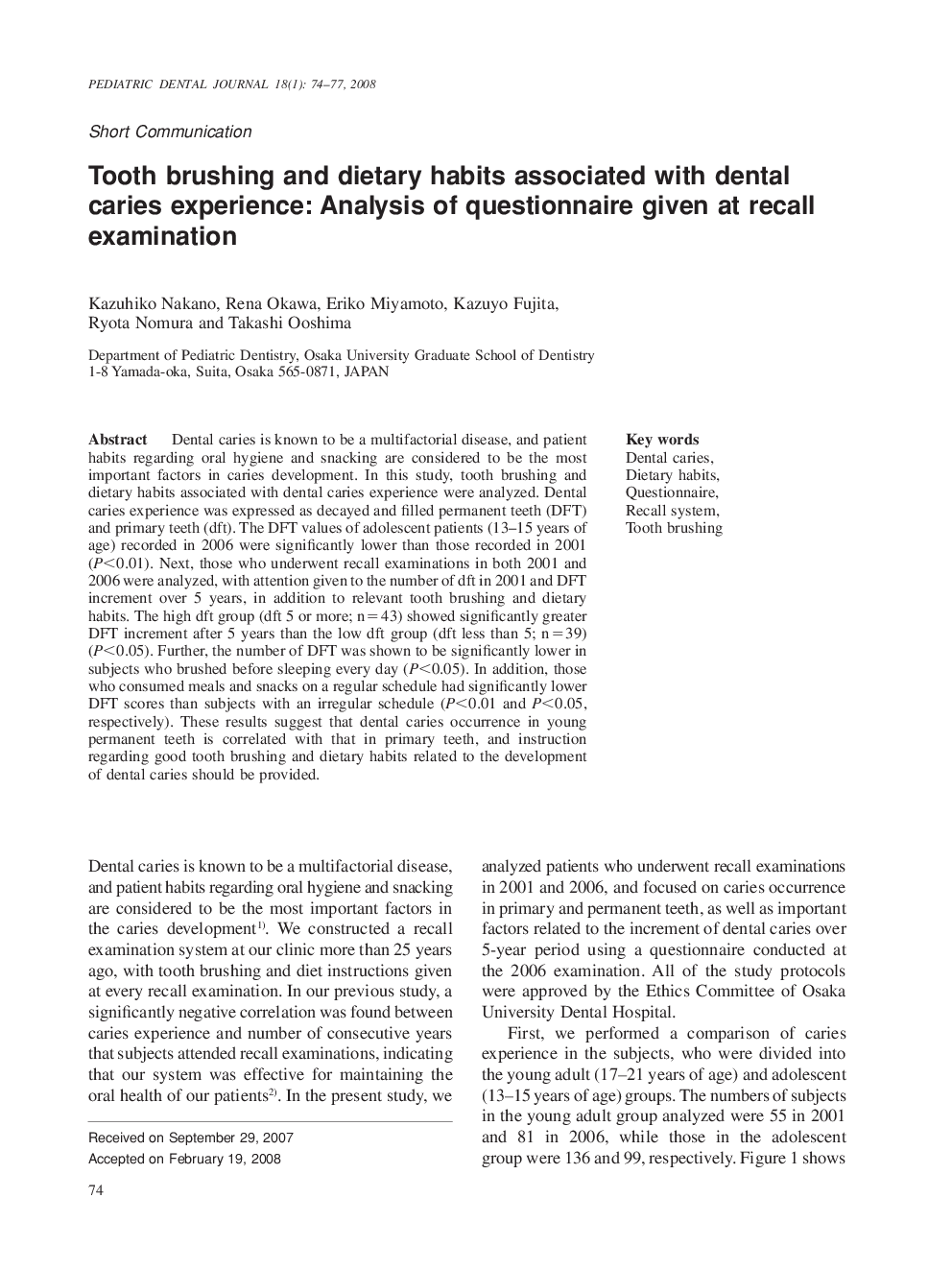| Article ID | Journal | Published Year | Pages | File Type |
|---|---|---|---|---|
| 3171740 | Pediatric Dental Journal | 2008 | 4 Pages |
Dental caries is known to be a multifactorial disease, and patient habits regarding oral hygiene and snacking are considered to be the most important factors in caries development. In this study, tooth brushing and dietary habits associated with dental caries experience were analyzed. Dental caries experience was expressed as decayed and filled permanent teeth (DFT) and primary teeth (dft). The DFT values of adolescent patients (13–15 years of age) recorded in 2006 were significantly lower than those recorded in 2001 (P < 0.01). Next, those who underwent recall examinations in both 2001 and 2006 were analyzed, with attention given to the number of dft in 2001 and DFT increment over 5 years, in addition to relevant tooth brushing and dietary habits. The high dft group (dft 5 or more; n = 43) showed significantly greater DFT increment after 5 years than the low dft group (dft less than 5; n = 39) (P < 0.05). Further, the number of DFT was shown to be significantly lower in subjects who brushed before sleeping every day (P < 0.05). In addition, those who consumed meals and snacks on a regular schedule had significantly lower DFT scores than subjects with an irregular schedule (P < 0.01 and P < 0.05, respectively). These results suggest that dental caries occurrence in young permanent teeth is correlated with that in primary teeth, and instruction regarding good tooth brushing and dietary habits related to the development of dental caries should be provided.
